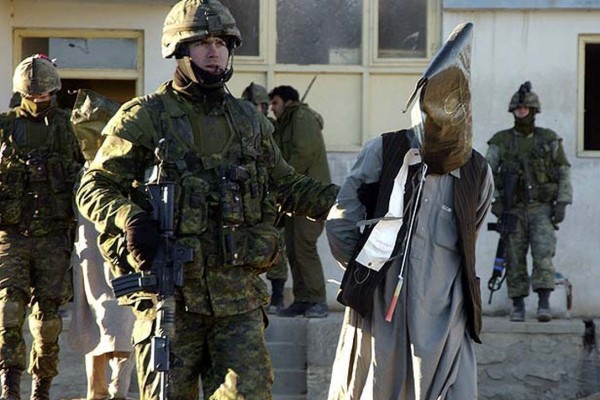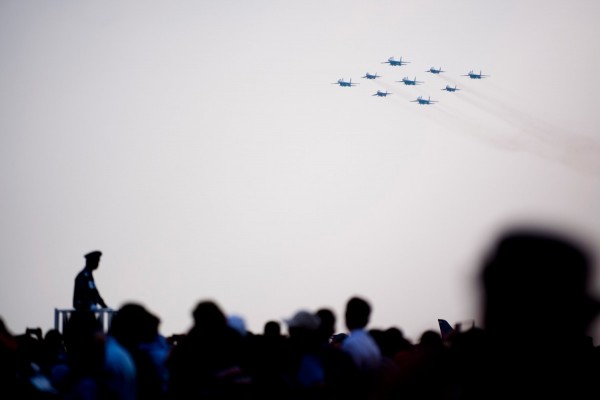-

With Afghanistan fiasco, Canada’s ‘feminist’ foreign policy lies in pieces
Two and a half months after the fall of Kabul, the situation in Afghanistan could not be more dire. With the totalitarian Taliban reign among the most misogynist the contemporary world has seen, Afghanistan is a litmus test not only for any feminist foreign policy but for human rights in general. If Canada continues to abandon those women and young girls whose minds, dreams, and aspirations it has helped shape, it forfeits all moral authority.
-

Canada and the war on Tigray
If Prime Minister Trudeau wants to bring Canada’s compassionate and constructive voice back to the world stage, this is the time to do so. The Abiy government’s war in Tigray represents a decisive moment for Canada to affirm the values it proclaims guide its presence in the world, by deploying all of the economic, political, and diplomatic tools at its disposal to help bring a swift end to the humanitarian crisis.
-
Afghanistan may forever be the graveyard of empires
Joe Biden had to face a difficult choice: keep US and NATO troops in-country for an unknowable number of years, risking more American and Afghan lives to maintain a shaky, corrupt government in a nation riven for centuries by tribal rivalries. Or cut loose and send our people home. Blood would further spill no matter which he chose but by leaving, American blood will no longer soak Afghan soil.
-

Canada’s shameful legacy of torture in Afghanistan
This essay was first published on several Canadian websites in April 2011, during an election campaign that Stephen Harper hoped would give him a parliamentary majority. I wrote this essay out of anger—anger, first, that Canada had been drawn into an illegal war of military occupation in Afghanistan. And a deeper anger that the war’s justification, and the manner in which it was being fought, both rested on practices of torture.
-

Our disastrous war in Afghanistan
Compared to the 2,981 lives lost on 9/11, in the response about two-and-a-half times as many American and coalition soldiers and contractors died (7,528). About twenty-four times as many Afghan and Pakistani civilians (71,254), and about twenty-six times as many (pro-coalition) Afghan and Pakistani security forces (76,814) were killed. In total, about 240,000 lives were lost. And the war failed.
-

Canada’s failure in Afghanistan
Canada’s biggest military deployment since the Second World War, more than 40,000 Canadian troops fought in Afghanistan between 2001 and 2014. Canada also spent $20 billion on military operations in the country. And while the stated rationale of the war was to neutralize al-Qaeda members and topple the Taliban regime, the latter has now regained control of the country and the influence of jihadist groups will likely intensify.
-

76 years after Hiroshima bombing, time for a nuke-free world is now
Nuclear weapons constitute one of the most serious threats facing humanity. On the 76th anniversary of the bombing of Hiroshima, it’s time to acknowledge Canada’s contribution to building the first atom bombs, and sign the United Nations Nuclear Ban Treaty. If the federal government is serious about supporting nuclear disarmament this is the least it can do.
-

Canada’s fighter jet purchase is a waste of public money—and a disaster for the climate
In this political moment, it’s becoming increasingly difficult for progressives to argue that resources should be devoted to fighter jets rather than pandemic recovery and mitigating the climate crisis. Perhaps a few hundred more phones calls, emails and tweets could move the NDP to just say no to spending tens of billions of dollars on unnecessary, dangerous, climate destroying fighter jets.
-

The ‘new Cold War’ and the hegemony of global capitalism
A double-barrelled ‘new Cold War’ is on, with the US-led empire of capital on one side and its rivals in China on one front and Russia on the other. The Canadian ruling class has enthusiastically enlisted to fight alongside its American partners. This camp has been the primary instigators of tensions with China and Russia that could culminate in a disastrous war between major world powers.
-

No ‘real change’: Trudeau’s militaristic approach to the Middle East
The Liberals continue to espouse a “feminist foreign policy,” but in practice they preside over a patriarchal, militaristic, and violent approach to the Middle East—all while leaning on the assumption that they will not be scrutinized as forcefully as an unabashed right wing government. If these policies continue, it signals that the world assuredly does not “need more Canada,” but less of it.




